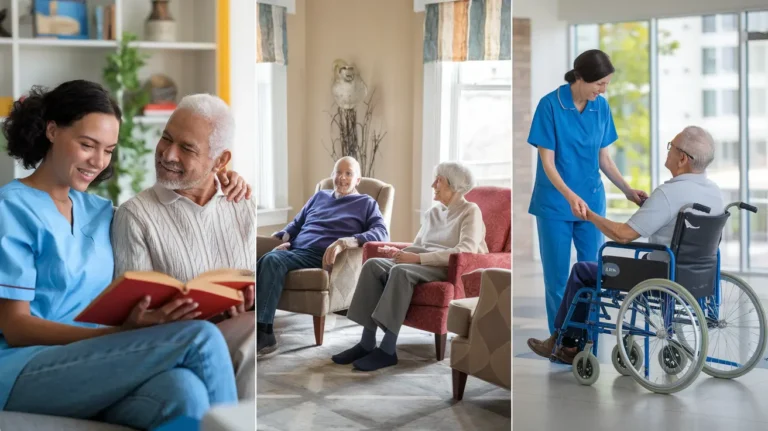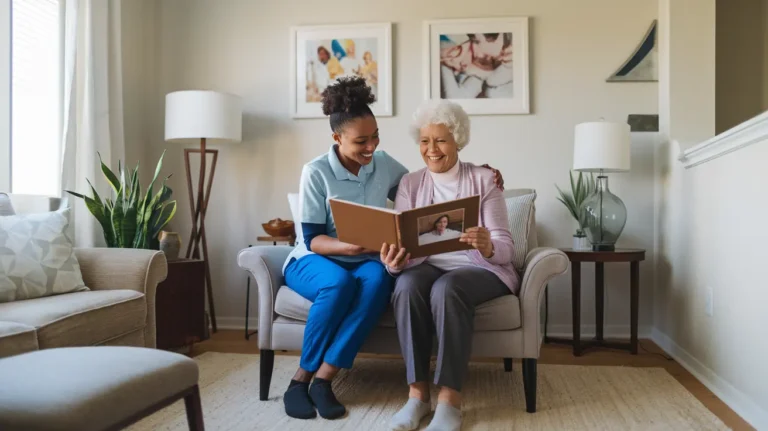When to Get Senior Care in Indianapolis: Signs, Options, and Essential Guidance
The first time I realized my grandmother needed more help, it wasn’t a dramatic moment. It was a quiet Sunday afternoon when I noticed her refrigerator was filled with expired milk and forgotten leftovers. My tough-as-nails grandma, who once managed a diner single-handedly, was suddenly struggling with the simplest tasks. That’s often how it starts – not with a bang, but with small, almost imperceptible signs that whisper, “It might be time for some extra help.”
In Indianapolis, we’re known for our Midwestern practicality, but when it comes to senior care, practicality meets compassion. This isn’t just about finding a place for your loved one; it’s about preserving their dignity, maintaining their independence, and ensuring they receive the care and respect they deserve. Trust me, I’ve been down this road, and I know how overwhelming it can feel. But here’s the good news: with the right information and approach, you can navigate this transition smoothly.
Physical Health Decline
Physical decline doesn’t happen overnight. It’s like watching paint slowly fade – you don’t notice the changes until suddenly, the whole picture looks different. I remember my uncle, who was always the life of every family gathering, gradually becoming more hesitant about moving around. At first, we chalked it up to normal aging. But then came the missed steps, the trembling hands, the reluctance to walk more than a few feet without catching his breath.

In Indianapolis, we’re lucky to have healthcare professionals who understand these nuanced changes. But as family members, we’re the first line of observation. Weight loss can be a massive red flag – and I’m not talking about intentional dieting. When seniors start losing weight unexpectedly, it could signal underlying health issues like depression, medication side effects, or difficulty preparing meals. I’ve seen it happen with my own relatives, and it’s always a wake-up call.
Cognitive Changes
Memory loss is tricky. It’s not always as dramatic as forgetting your entire life story. Sometimes, it’s forgetting what you had for breakfast or repeating the same story three times in an hour. My grandmother used to be a sharp storyteller, could recall details from decades ago. But gradually, she started mixing up names, confusing recent events, and struggling to follow conversations she’d normally dominate.

The cognitive changes can be subtle yet profound. One moment, your loved one might be perfectly lucid, discussing the latest neighborhood gossip, and the next, they’re completely confused about the time or place. I’ve sat with families who described this as the most heartbreaking aspect of aging – watching a brilliant mind slowly become foggy. In Indianapolis, we’re fortunate to have memory care specialists who understand these nuanced changes and can provide targeted support.
Home Safety Concerns
Home safety isn’t just about preventing falls – though that’s crucial. It’s about creating an environment where your loved one can maintain their sense of independence while staying protected. I’ll never forget walking into my aunt’s house and noticing unpaid bills scattered everywhere, a burnt pot on the stove, and medications mixed up in random drawers. These weren’t signs of laziness, but clear indicators that she was struggling to manage daily life.

In Indianapolis, we take home safety seriously. It’s not about stripping away someone’s autonomy, but about subtle modifications that make a massive difference. Grab bars in bathrooms, better lighting, removing trip hazards – these small changes can prevent major accidents. I learned this the hard way when my uncle took a fall that could have been prevented with some simple home modifications.
Caregiver Burnout
Caregiver burnout is real, and it’s brutal. I’ve watched my own family members transform from loving, patient caregivers to exhausted, frustrated individuals. It’s not something people like to talk about, but the emotional and physical toll of caring for a senior can be overwhelming. One moment you’re managing medications, the next you’re coordinating doctor’s appointments, handling finances, and trying to maintain your own life.

Indianapolis offers incredible support systems for caregivers, but recognizing your limits is crucial. I remember my cousin, who was trying to manage her mother’s care while working full-time and raising two kids. She was running herself into the ground, and it wasn’t helping anyone – not herself, not her mother, not her family. Sometimes, seeking professional help isn’t a sign of weakness, it’s a sign of love and self-preservation.
Senior Care Options
In-home care isn’t just about having someone check in occasionally. It’s about creating a personalized support system that respects your loved one’s independence. When my grandmother first needed help, we were terrified of making her feel inadequate. But the right in-home care professional became more of a companion than a caregiver – someone who could help with meals, provide companionship, and ensure she was safe.

Assisted living facilities in Indianapolis have come a long way. Gone are the days of sterile, hospital-like environments. Now, these are vibrant communities where seniors can socialize, participate in activities, and receive medical support. I’ve visited several facilities where residents are taking art classes, playing competitive chess, and living fuller lives than some people half their age.
Financial Considerations
Let’s be real about senior care costs – they’re not for the faint of heart. When we first looked into care options for my uncle, the numbers were shocking. In-home care can run $20-$30 per hour, and assisted living? We’re talking about $3,500-$5,000 monthly. It felt like we needed a financial miracle. But here’s the thing: with proper planning and understanding of available resources, it’s manageable.

Indianapolis offers some incredible resources for funding senior care. Veterans benefits, Medicaid, long-term care insurance – these aren’t just abstract concepts, they’re real lifelines. I’ve seen families transform their senior care strategy by understanding these options. It’s not about finding the cheapest solution, but the most comprehensive and compassionate one.
Emotional Preparation
Emotional preparation isn’t a one-time event; it’s a process. When we started discussing senior care with my grandmother, it felt like walking through a minefield. Her pride was at stake, her sense of independence challenged. We learned quickly that involving her in every decision, validating her feelings, and emphasizing that this was about support – not taking away her autonomy – made all the difference.

For families, this transition is emotional turmoil. The roles reverse – suddenly, you’re making decisions for the person who once made decisions for you. I’ve seen siblings argue, parents feel betrayed, and seniors feel abandoned. But here’s the truth: approaching this with open communication, empathy, and genuine love can transform this challenging time into a period of deeper connection.
Conclusion
Senior care isn’t a destination; it’s a journey. Every family’s path is unique, winding through moments of frustration, love, challenge, and unexpected joy. When we finally found the right care solution for my grandmother, it wasn’t just about medical support – it was about giving her a new chapter of life filled with dignity, care, and continued purpose.
Your journey will be different, but the core remains the same: love, respect, and compassionate support. Start those conversations early, research thoroughly, and remember – seeking help isn’t a failure. It’s the most profound expression of love you can offer. And who knows? This transition might just reveal strengths in your family you never knew existed.







